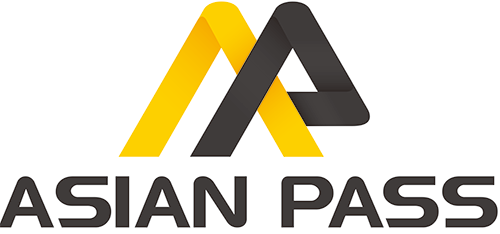In any business, tax accounting is an indispensable part of helping to ensure that the tax management and declaration process is transparent, clear and in accordance with the law. So what does a tax accountant do? What do tax accountants need to know? How to perform tax accounting? PHAM CONSULT will provide basic knowledge about tax accounting to help you understand and apply regulations to handle tax accounting operations arising at your business effectively. We are always proud to be the leading tax accounting service provider in Vietnam.
Tax Accounting
Pursuant to Circular 111/2013/TT-BTC, Article 3, Clause 2. Tax accounting is defined as the process of collecting, recording, and reflecting all information about the tax amount incurred, including tax payable, tax collected, tax still payable, tax refunded, refunded tax, tax still refundable, exempted tax, etc…reduced taxes, as well as debt freezing and debt cancellation transactions, in the process of implementing tax administration activities.
From the above provisions, it can be explained that tax accounting is the profession in charge of handling issues related to the obligation to declare and pay periodic taxes of enterprises according to the State’s regulations. It can be said that tax accounting acts as a bridge between businesses and State agencies. On the one hand, thanks to tax accounting, businesses are more convenient in fulfilling tax obligations in a clear and lawful manner, ensuring stable business activities. On the other hand, for the State, tax accounting makes it easier to manage the multi-component economy, thereby ensuring the maintenance of a stable source of revenue for the State budget.
Tax accounting process
The tax accounting process will be carried out according to the following basic steps:
Step 1: Proceed to settle arising accounting operations.
Step 2: Make accounting documents.
Step 3: Record accounting books.
Step 4: Perform the tasks of the accountant at the end of the period.
Step 5: Make a balance sheet, declare expenses and incurred data.
Tax Deduction
Make a list of input and output expenses and make a VAT return
Make a summary table explaining additional declarations and adjustments to unreasonable taxes
Step 6: Prepare financial statements and make tax finalization.
For newly established enterprises, it will be carried out through the following steps:
Step 1: Receive the business registration certificate (business registration) of the enterprise
Step 2: Create an account for your business
Step 3: Buy digital signatures to declare and pay taxes electronically
Step 4: Create a declaration and account for license tax
Step 5: Calculate value-added tax (VAT) and make form 06/GTGT and send it to the tax authority
Step 6: Synthesize invoices and documents to report and pay taxes
Step 7: Conduct bookkeeping based on documents and invoices
Step 8: Conduct book reconciliation and make annual financial statements
Step 9: Print the book and sign and seal it
Step 10: Archive all kinds of books and documents
The role of consulting on tax-related issues in accounting
Tax accountants play an important role in ensuring that businesses comply with the provisions of tax laws, and at the same time help businesses optimize profits by minimizing the amount of tax payable.
Participate in the business planning of the business: Tax accountants provide information about the taxes payable to businesses, thereby helping businesses make reasonable business decisions, ensuring maximum profits.
Helping businesses comply with tax laws: Tax accountants are responsible for carrying out tax procedures for businesses, ensuring that businesses comply with tax laws.
Helping businesses minimize the amount of tax payable: Tax accountants can help businesses minimize the amount of tax payable through the application of tax policies and tax incentive procedures,…
Consulting services on tax-related issues in accounting processing
PHAM CONSULT is confident to bring the most professional, fast and economical tax services:
- Accounting and tax standards: Accounting practices must comply with applicable accounting standards, but must also ensure compliance with applicable tax regulations. This is especially important for taxable income and deductible expenses.
- Income classification: Identify and classify appropriate incomes to include in tax returns. The types of income include pure taxable income, non-pure taxable income, value-added tax, and allowable deductions.
- Process input and output invoices: Ensure invoices are processed properly so that VAT and other deductions can be deducted. This includes checking the validity of invoices, content conformity with tax regulations.
- VAT management: Including calculation, deduction, remittance and reporting of value-added tax (VAT) for transactions of purchase and sale of goods and services.
- Tax Deductions: Identify and deduct taxes paid, as well as other deductions such as family circumstance deductions, small and medium-sized business deductions.
- Special issues: Handling special issues such as personal income tax, corporate income tax, special taxes (such as income tax on assets, investment profits), and specific tax regulations of specific industries or types of business.
- Tax Reporting: Prepare and file tax returns on time and tax-related financial reporting regulations.
Regularly updating tax regulatory changes is important to ensure compliance and avoid legal risks. If you have more specific questions or need detailed guidance on a specific tax issue, please let us know so we can provide more information.
If you have any legal questions that need to be answered, do not hesitate to contact PHAM CONSULT immediately at hotline +84932 103 118 to receive advice from specialists.




 VI
VI